Hamida resents her life in Midaq Alley and seeks to leave it for a life of luxury and sophistication. She works as a prostitute with the help of the pimp Farag, who takes her out of the poverty of the alley and into the comforts of life.
There’s also Al-Boushi, who digs up the graves of the wealthy in search of wealth, and Dr. Zita, who specializes in causing physical disabilities in beggars. All of these characters paint a vivid picture of Egyptian society during World War II. The novel was published in 1947, and was adapted into a film by director Hassan El Imam in 1963, and a Mexican film starring Salma Hayek in 1995.
Midaq Alley
د.ا9.00
This novel explores the lives of the residents of Midaq Alley in Cairo, revealing the social and political transformations in Egypt during World War II.
Available on backorder
| Categories: | Literature, Novels, stories, World literature |
|---|---|
| Tags: | literature, love, Novels, Sociology |
| Author | |
|---|---|
| Year | |
| Publisher | Dar Al-Shorouk |
You may also like…
-
The Quail and the Autumn
د.ا7.00A philosophical novel that sheds light on the inner struggles of man in the post-revolution period, addressing issues of identity and social changes in Egyptian society.
-
Morning and Evening Talk
د.ا7.00The novel revolves around the evolution of individuals and Egyptian society across generations, exploring the struggles and complexities of daily life within a humanistic philosophical framework.
-
Convalescent Dreams
د.ا7.00A collection of short stories that reflect Naguib Mahfouz’s reflections on life and death, and the human experience in its later stages.
-
Rhodopes
د.ا9.00The novel depicts a tragic love story between the pharaoh and the beautiful Rhodopis in ancient Egypt, reflecting the struggle between passion and power.
Related products
-
The other thing
د.ا2.13Ghassan Kanafani is a Palestinian novelist, storyteller, and journalist, and is considered one of the most famous Arab writers and journalists in the twentieth century. His literary works, including novels and short stories, were deeply rooted in Arab and Palestinian culture
د.ا3.55 -
For Bread Alone
د.ا4.97For Bread Alone , al-Khubz al-Hafi) is a controversial autobiographical work by Mohammed Choukri. It was written in Arabic in 1972 and translated into English by Paul Bowles in 1973.[1] In 1980, it was published in French as Le Pain Nu in a translation by Tahar Ben Jelloun. The novel has been translated into 39 foreign languages[2] and adapted into a French graphic novel by Abdelaziz Mouride [fr].[3]
د.ا7.10 -
Anichatin and relativity
د.ا2.13In this book, its author, Dr. Mustafa Mahmoud, tries in his style known as ease and extreme logic in understanding the theory of relativity of the physicist Albert Einstein so that it suits the understanding and perception of the general public, and in a strong objection to limiting information to a few scientists under the pretext of depth and specialization, which may lead to the isolation of science, supporting in his book what Einstein himself called for to spread science among people, Einstein hated scientific fortune-telling and fabrication of mystery, claim, and magnification, and he used to say that the truth Never mind.
د.ا4.26 -
Prisoner of Heaven
د.ا7.10After the shadow of the wind and the angel game, I ended my strange meeting with Carlos Zafon in the third part of the Tomb of Forgotten Books series in this piece that I read while trying to understand what was going on in his head, which wanted the prisoner of heaven to tell us the dark nights of Barcelona from the window of its prisons, that prison that embraced Martin for a long time and through which he excelled in writing The Game of the Angel, which was the hero of that novel David Martin and Isabella, and we got to know their end, which was not confirmed by the lines. The writer also explains that what we can consider a coincidence with us may be wisely studied and what we interact with with all honesty may be fake and obsolete as the first boot, the past is just images stuck in our heads and just a glance of it returns to expose itself, and opens new cracks in our hearts, pushing you to search and explore what the truth is and to what extent it can comfort you or in any proportion that may make you a wreckage between the legs, yet the search for it is The way of salvation,
د.ا8.52 -
Flower swordsman
د.ا7.10The Swordsman of Flowers is a collection of prose texts that combines irony and sadness and expresses issues of freedom and human oppression
د.ا8.52 -
The Forty Rules of Love
د.ا10.65is a novel written by the Turkish author Elif Shafak,[1][2][3] Her interest in writing this book was influenced by the degree she received in Gender and Women’s Studies.[4] The book was published in March 2009.[5] It is about the Persian mystic poet Maulana Jalal-Ud-Din, known as Rumi and his companion Shams Tabrizi.[6][7] This book explains how Shams transformed a scholar into a Sufi (mystic) through love.[8] More than 750,000 copies of this book were sold in Turkey and France
د.ا12.78 -
What’s left is yours
د.ا2.13Ghassan Kanafani is a Palestinian novelist, storyteller, and journalist, and is considered one of the most famous Arab writers and journalists in the twentieth century. His literary works, including novels and short stories, were deeply rooted in Arab and Palestinian culture
د.ا3.55 -
Lover
د.ا2.13Ghassan Kanafani is a Palestinian novelist, storyteller, and journalist, and is considered one of the most famous Arab writers and journalists in the twentieth century. His literary works, including novels and short stories, were deeply rooted in Arab and Palestinian culture
د.ا3.55

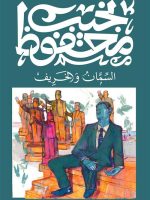
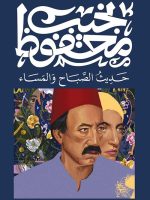
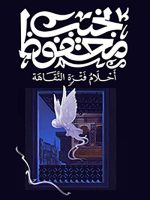
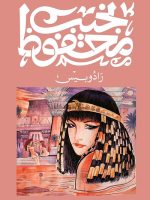
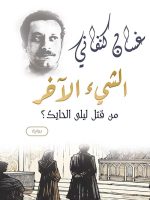
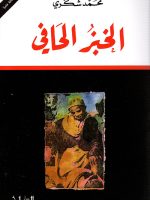
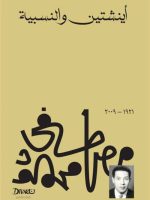
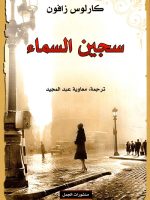
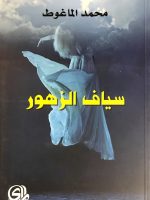
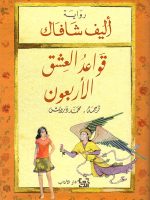
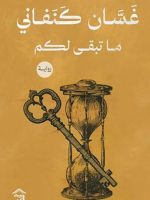
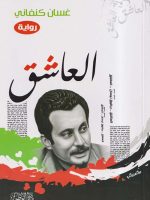
Be the first to review “Midaq Alley”